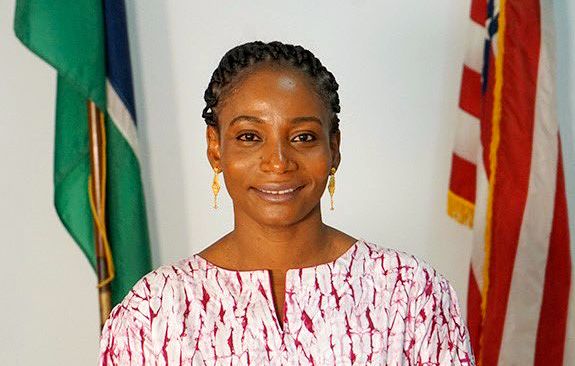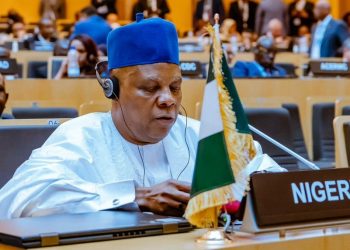The United States set to recognize 3 Africans and others women globally who have shown exceptional courage in all their diversity for annual International Women of Courage (IWOC) Awards ceremony holding in White House, Washington DC, on Monday 4th of March, 2024.
The Secretary of State, Antony J. Blinken and the First Lady, Jill Biden will host the 18th year, IWOC Award recognizes women from around the globe for demonstrating strength, leadership in advocating for peace, justice, human rights, gender equity and equality, empowerment of women and girls, often at great personal risk and sacrifice.
Since March 2007, the Department of State has recognized more than 190 women from 90 countries with the IWOC Award. America diplomatic missions overseas nominate one woman of courage from their respective host countries, and finalists are selected and approved by senior Department officials.
While after the IWOC ceremony, these awardees will participate in an in-person International Visitor Leadership Program (IVLP) and additional programming in Los Angeles, during which they will engage with American counterparts on strategies and ideas to empower women and girls around the globe.
These 3 African awardees are, 1. Fatou Baldeh, a survivor of female genital mutilation and cutting (FGM/C), waded into this highly contentious and polarizing issue as unwavering advocate, defending critical protections that can mean life or death for women and girls.
Ms. Baldeh documented women’s experiences during the Jammeh dictatorship, including murder, rape, forced labor, and witch hunts, where victims were tortured into giving false confessions. Her findings were essential to Gambia’s Truth, Reconciliation, and Reparations Commission’s (TRRC) final report.
Through her organization, Women in Liberation and Leadership (WILL), Ms. Baldeh tirelessly educates the public and private sectors about human rights and the dangers of FGM/C in a country where 75% of women have endured some form of it, despite the existing ban.
She says her proudest achievement, though humble, is profoundly impactful: saving her 11-year-old niece from FGM/C and breaking the cycle in her own family.
2. Rabha El Haymar, a courageous Moroccan woman who successfully navigated her country’s legal system and fought to obtain, through a recourse provided by Morocco’s family code reform of 2004, recognition of traditional marriage to spare her daughter a life of marginalization and discrimination as an undocumented child.
Ms. Haymar’s story became more than a personal triumph when she crossed paths with British film-maker Deborah Perkin and agreed for story to be told in a documentary entitled “Bastards.”
Shown on Moroccan national television and film festivals around the world, “Bastards” raises awareness about the plight of mothers of undocumented children, and the Moroccan family laws allowing women like Ms. Haymar to seek justice.
Despite the heavy reputational cost of publicly sharing her story, Ms. Haymar believes doing so can encourage other women and lead to change.
As King Mohammed VI calls for a new review of Morocco’s family code, Ms. Haymar’s case is now more relevant than ever. She hopes that new reforms “will protect the rights of all women and children and empower them as full and equal citizens.”
3. Agather Atuhaire, a renowned journalist, lawyer, social justice activist who advocates for human rights, public accountability, and the rule of law in Uganda.
Her work as a journalist has brought to light parliamentary abuse of process and excess, threats to multi-party democracy, health sector abuses, sexual harassment in the NGO sector, and violations of students’ rights.
Ms. Atuhaire’s work has garnered her a reputation as a trusted voice on matters of governance, accountability, and social justice in Uganda.
Her dedication to alleviating suffering for others – sometimes at great personal risk – has brought change to Ugandan institutions like Parliament, National Water Corporation, Kampala Capitol City Authority, Ministry of Health, and the Law Development Center to name a few.
As team leader at AGORA – a platform to foster public discourse, social justice, public accountability – her team continues to hold leaders accountable through evidence-based activism, reporting, and civic awareness.
Others are, Benafsha Yaqoobi, a afghan who is visually impaired, worked for years as an attorney defending the rights of women who faced violence; founded Rahyab Organization in 2008 with her husband to provide education and rehabilitation to visually impaired people in Afghanistan.
Volha Harbunova, a Belarusian human rights defender who has dedicated her life to advocating for the rights of women, children, the LGBTQI+ community, and other marginalized groups in Belarus.
In the wake of the fraudulent 2020 elections in Belarus, Harbunova was imprisoned by the Lukashenka regime after organizing women’s marches and, while in prison, suffered psychological torture from the authorities and death threats for helping abused women.
Fariba Balouch, a London-based Iranian human rights activist from Iran’s Sistan and Baluchistan Province and a member of Iran’s marginalized Baluchi ethnic group.She is outspoken about women’s rights and the human rights crisis in Sistan, Baluchistan, which has disproportionately affected by regime violence, executions, and systemic discrimination.
Also, recognizing the nine women who were among the 222 political prisoners released from prison in February 2023 allows us to safely honor Nicaraguan activists who continue to fight for democracy and human rights under a repressive regime.
These nine women represent a wide swath of civil society. Before their arrests, these women worked as human rights defenders, journalists, politicians, and women’s rights activists to fight for basic freedoms in President Daniel Ortega and his wife Vice President Rosario Murillo’s autocracy.
All of them were exiled to the United States and stripped of Nicaraguan citizenship, rendering them effectively stateless, remain engaged, particularly with the diaspora among other awardees.
IWOC: US to honor 3 African women, others for exceptional courage
Please login to join discussion












